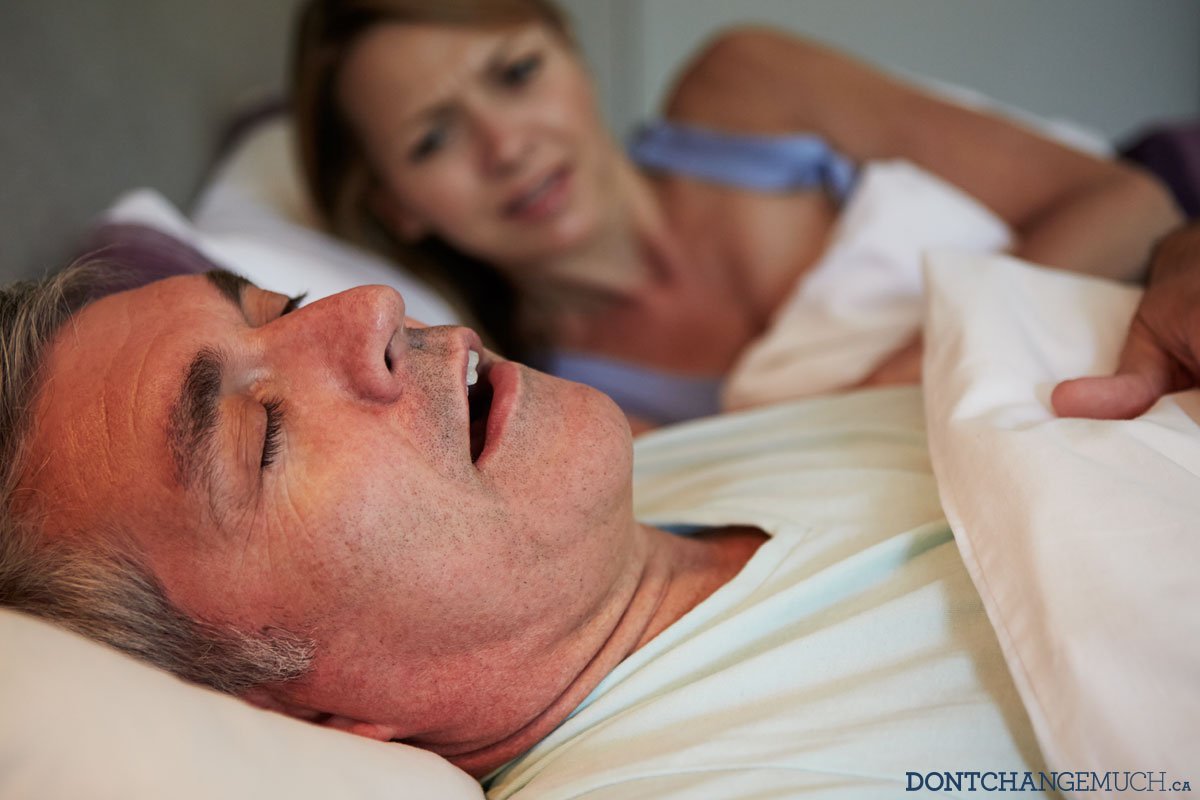“Early to bed and early to rise, makes a man healthy, wealthy and wise.”
This is one of Benjamin Franklin’s best-known quotes, and for good reason: Sleep is crucial for us proud-to-be-healthy Canadian men.
What’s particularly important is that proper breathing is key to a good night’s rest. Most men don’t think of snoring as a problem – it’s just something we do, right? But that “all-natural” sleep sound can sometimes be a symptom of a condition called obstructive sleep apnea.
Fortunately, there are a handful of simple things you can do to keep your breathing right at night, but first let’s give you the 4-1-1 on sleep apnea:
What’s sleep apnea?
The Greek word “apnea” means “without breath.” Sleep apnea happens when your tongue and throat relax too much, blocking your air canal. A surprising 1-in-20 men suffer from sleep apnea, and complications may include high blood pressure, heart disease, stroke and erectile dysfunction (gulp!).
Causes and symptoms:
There isn’t one specific thing that triggers sleep apnea, but those at greatest risk are overweight men aged 40-plus. A major symptom is extremely loud snoring, sometimes so loud that whoever shares your bed is thrown out of it! You could also be suffering from sleep apnea if you’re tired most days, if you’re getting up several times in the night to urinate, or if you find yourself waking up regularly with a dry mouth or headache. Click here for more signs of sleep apnea. Low testosterone (Low T) is often associated with sleep apnea, and patients with sleep apnea should be screened for low testosterone as well.
What to do about it:
If you think you may be experiencing sleep apnea, be sure to consult a doctor for testing. Here are a few easy tips you can work into your routine right now to avoid developing sleep apnea:
- Avoid alcohol at least two hours before going to bed.
- Only use sleeping pills if your doctor says it’s OK, as they can relax your throat muscles and slow your breathing even more than usual.
- Quit smoking. Check these 5 common signs that you’re ready to quit.
- Exercise! Walk around while you talk on the phone, or get off the bus a few blocks early. Exercise that combines brisk walking and weight training may help reduce the severity of sleep apnea.
Sources:
Sleep Apnea Basics, American Sleep Apnea Association. Accessed Aug. 16, 2015.
Sleep Apnea, Public Health Agency of Canada. Accessed Oct. 14, 2015.

I have severe sleep apnea i stop breathing multiple times a night before i got my cpap machine my fiance could only wake me up by punching me in the testicles when i stopped breathing …not fun the next morning …i seriously urge anyone with sleep apnea to talk to your healthcare professional…as you could stop breathing and necer wake up
This is some great information, and I appreciate your point that extremely loud snoring can indicate obstructive sleep apnea. My husband has had problems with loud snoring in the past, but we’ve kind of just gotten used to it. I didn’t realize that this could indicate more serious problems, so I’ll definitely talk to his doctor about it. Thanks for the great post! http://www.cpapsolutions.ca/
Great information.